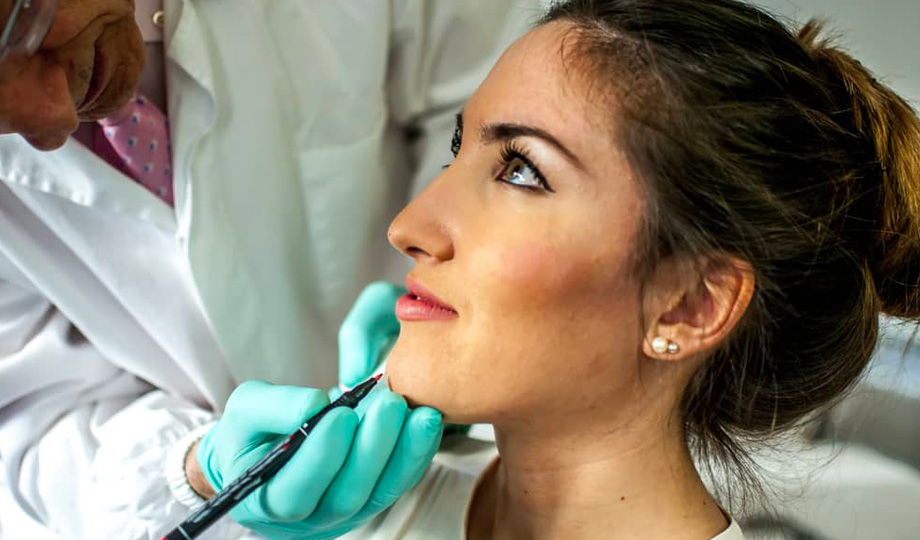Oral Surgeon Fort Worth, Texas
Please keep in mind that some severe cases of orthodontic problems might require invasive surgical procedures, such as jaw surgery or Fort Worth oral surgery, as many people know it. The best orthodontist in Fort Worth knows that, in complex situations, they have to coordinate with other specialists to deliver the care you deserve and need. Jaw surgery can help treat irregularities caused by skeletal and jaw development problems.
If you want to learn more about jaw surgery Fort Worth, Texas, contact Perkins Orthodontics today at (817) 294-5021 and schedule an appointment with Dr. Evan Perkins!
Usually, orthodontics realigns your teeth and jaws gradually and safely with an appliance, such as braces or clear aligners, but this is not always the case for patients with complex cases. Surgical interventions can help correct abnormalities in the orofacial structures after the jaw stops growing. Leaving those problems uncorrected can cause additional complications related to speech, chewing, eating habits, and sleeping.

Who Needs Oral Surgery in Fort Worth?
You can trust that you’ll find nothing but the best when you come to our office here in Fort Worth, TX. We rely on our specialists’ skills and experience but also leverage the latest technology, techniques, and materials available to ensure you achieve your desired results.
Likewise, we take pride in letting our patients know everything they need to about their treatment as we review the planned procedure and show you all the relevant details to help you understand what will happen over the months you spend with us.
Our team is focused on providing you with a comfortable and positive experience. After your Oral surgery in Fort Worth, you may need to continue with your treatment to ensure optimal results; as such, you’ll be glad to know our team will do everything it can to reach your goals efficiently.
Contact us today at Perkins Orthodontics and schedule a visit with Dr. Evan Perkins for orthodontic care in Fort Worth, Texas!
To learn more and discover if Jaw surgery Fort Worth is right for your smile, we welcome you to contact our orthodontist and team today. We are committed to improving your smile!
Frequently Asked Questions
What Is Jaw Surgery?
It is a surgical procedure performed by a qualified maxillofacial surgeon in coordination with Dr. Perkins to fix an abnormality in the maxilla or mandible that precludes a perfect match of the jaws producing a misalignment that affects the patient’s craniofacial structure.
Will My Insurance Cover My Surgery?
At Perkins Orthodontics, we accept all insurance providers. Our Fort Worth Oral surgery team will revise your insurance coverage and do its best to help you feel that finance should not be a burden to get quality orthodontic care. Moreover, we make all possible arrangements to help you and your family have a beautiful smile, so we offer interest-free financing options. We also offer free consultations and records so you feel part of our family.
What Can I Expect During Jaw Surgery?
You will feel nothing at all. Jaw surgery is a general anesthesia procedure so that you will be asleep all the time during Oral surgery in Fort Worth.
What is Recovery From Jaw Surgery Like?
After Jaw surgery in Fort Worth, you will experience swelling and discomfort, numbness on one or both lips that will recede as time passes. Also, the hospitalization timeframe varies from one to four days in more complex surgeries. During the hospitalization period, you will have professionals caring for you. But, after leaving the hospital, it is essential to follow medical prescriptions. In addition, following a diet and proper oral hygiene are essential for successful recovery. The recovery time varies from six to twelve weeks.
What is The Best Age For Orthognathic Surgery?
Between ages seventeen and twenty-one for males and fourteen to sixteen for females.
Can Orthognathic Surgery Go Wrong?
Yes, as with any surgery, there is a minimum but possible risk of something going wrong. Among the potential risks, patients might adversely react to anesthesia, experience more than expected bleeding, an infection in the affected area, jaw nerve damage, bone fracture, and undesired results or relapse, which might require additional surgery. Also, a bimaxillary osteotomy requires treating both jaws, increasing the risk of complications compared to surgery on either the mandible or maxillary alone.
How Long Is The Surgery?
The surgery takes several hours and, depending on the case, can last from two to five hours which will feel like ten minutes.






